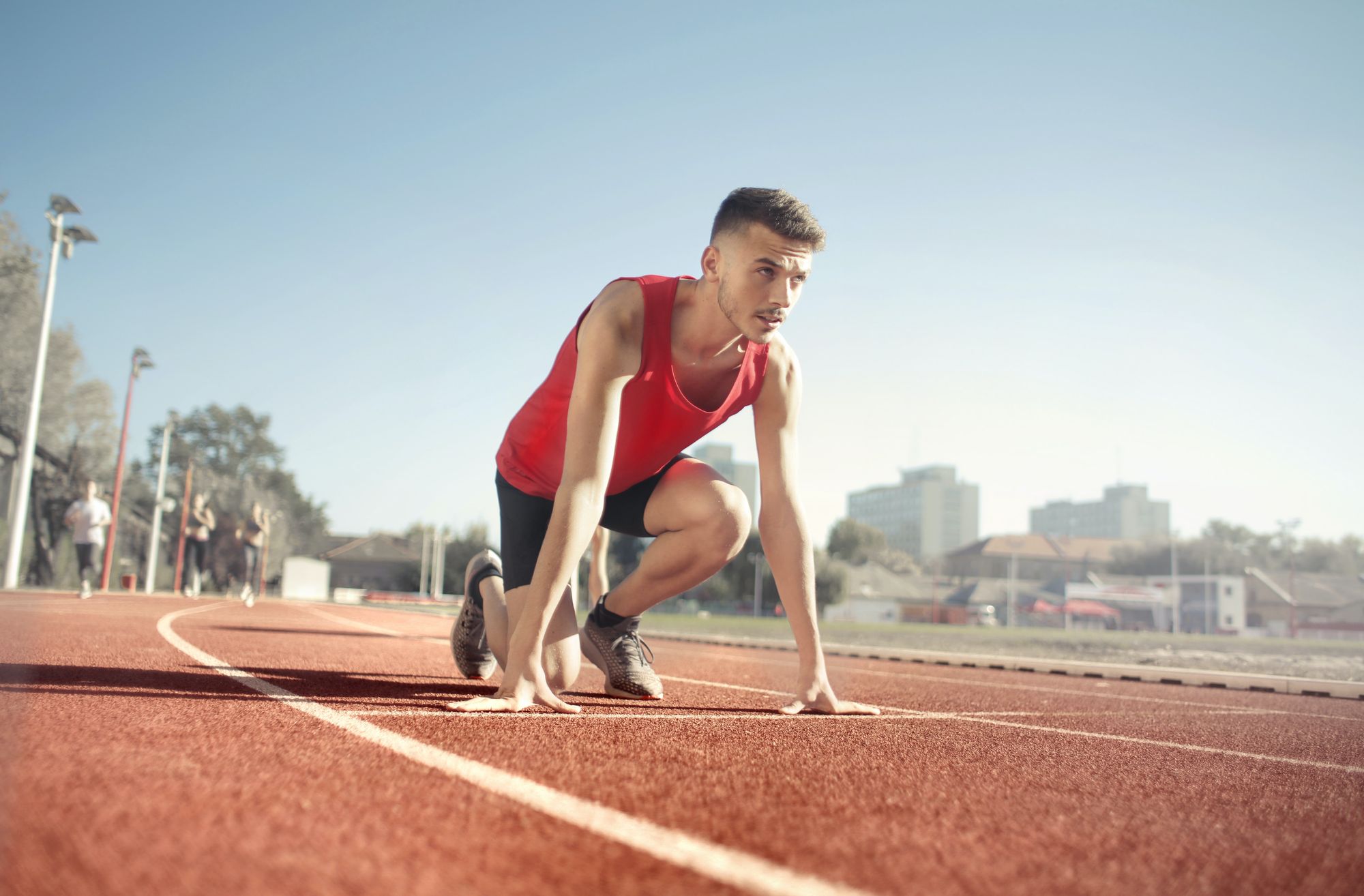
We recently hosted a free webinar for over 200 NCAA track and field coaches. In the course of this online event, they chimed in with several questions about how to develop their athletes’ mental game. In this post, Champion's Mind app creator Dr. Jim Afremow answers these queries.
What are your mental training tips for an athlete struggling with depression?
The first thing to do is refer them to the campus counselor or another professional to make sure they’re getting the care and support they need. Once you’ve checked this important box, you can use the Champion’s Mind app to guide them in some beneficial mindset exercises. We’ve created audios specifically for relaxation, confidence, and stress management that can help a depressed athlete cope better.
It’s also important to share with them that events that occur in the external world cannot affect their inner environment – how they think and feel – unless given permission. Though all too often, we can fall into the trap of letting cognitive distortions run riot. This is why our team spent a long time carefully crafting a series of Champion’s Mind app audios on this topic. Encourage your athletes to listen to them so that they can become better at identifying thinking errors and remedying them before they take hold.
As an athletic trainer, I incorporate visualization in the rehab process. What other mental skills can I have my athletes work on as they transition back to their sport?
Visualization is a wonderful tool for athletes to use to get in mental reps when they can’t perform physical ones. In terms of next steps, I’d suggest challenging them to make their rehab process their new sport while they’re still injured. After working through their initial disappointment and frustration, champions relish the challenge of the comeback and resolve to excel at it. So try to help your athletes reframe what has happened, so that they consider it not to be a calamity but an opportunity.
Another way to help is by asking each athlete, “What can you do today to have fun?” For some, this might be watching a movie with their family, or for others getting on a group video chat with friends. The hardest driving athletes are those who tend to overdo their PT’s and AT’s protocols, which can harm more than it helps. These are the ones who need your help getting some balance – and what better way than having a little fun?
In the midst of hardship, how can I keep my athletes focused and engaged?
This goes back to the cognitive distortions I mentioned earlier. A classic thinking error is to magnify a setback into something much bigger and scarier than it actually is. So say one of your long or triple jumpers is all revved up for a big first leap, only to step across the line and get the attempt waved off. Sure, they’ve got two more attempts to make their mark in the sand, but now there’s a lingering doubt in the back of their mind: “What if I foul again?”
In this instance, self-talk is key to making sure they deal with the situation as it actually is, without letting that earlier mistake impact their ability to jump far on attempts two and three. It might be as simple as telling themselves, “You’ve got this,” or “OK, I messed that one up. But I’m going to crush the next two.”
How can athletic trainers and other sports medicine professionals use the Champion’s Mind app effectively?
I’d suggest firing up the Champion’s Mind app and listening to the audios on bouncing back from injury together. This is a great conversation starter. You could begin with the section that focuses on the psychology of injury recovery, which contains lots of helpful tools, techniques, and tips. You do an excellent job of getting an athlete physically ready to return to their sport, but sometimes their mind isn’t quite right and this delays their progress when they get back on the track. These brief audios can help ensure that your injured athletes are just as well prepared mentally as they are physically to come back stronger and more resilient.
Where should I start my athletes with mental skills training?
Some people might say it’s best to start with self-talk or visualization, and if you were on the webinar, you heard me explain why these are great focal points right now while we’re still in the midst of the coronavirus fallout. But in working with hundreds of elite athletes across all sports, I’ve found that the most effective approach is to develop all the main mental skills simultaneously.
Of course, you can’t do everything all at once. But we thoughtfully designed the sections of the Champion’s Mind app so that your athletes can begin working on performing well under pressure, being more confident, and so on, in just a few minutes a day.
The other key here is consistency. Just like you wouldn’t have a runner do 50 x 400 meters on Monday and then nothing for the rest of the week, neither should you force feed mental skills training through a fire hose once, and then ignore it. Some programs bring in a speaker or assign a sports psychology book to their athletes for a couple of weeks. This means mindset work is a hot topic for a while, but then gets left by the wayside. It’s far more impactful to keep consistently building your mental game day in and day out. So have your athletes download the Champion’s Mind app, tell them you expect them to listen to just one audio per day, and then track their progress at a glance with our coaches’ dashboard.
Do you have a technique I can use to help my athletes overcome their fear of not reaching certain goals?
I’d like to change the question they might be asking themselves from “What if I fail to achieve my aims?” to “What can I do today to get one step closer to my goals?” This flips the switch from negative and destructive to positive and constructive. And I think it’s not a matter of squashing that fear but rather dialing it into a level that’s beneficial. Fear can be a great motivator and keep us on our toes. It can also prompt us to do whatever it takes to win. I’d suggest asking your athletes to listen to one of the Champion’s Mind app audios on goal setting. Then follow up via text, phone, or email to ask them what they’re going to do today to get better and progress toward their goals.
How does developing a daily mental skills practice provide my team with a competitive advantage?
There are only two ways to train: physically and mentally. I’m guessing you’ve got your athletes covered with the former, but if you neglect the latter, you’re leaving 50 percent of their potential on the table. Developing a daily mental skills practice requires a tiny time commitment – just five minutes a day – yet yields enormous performance dividends. And right now, as your athletes aren’t able to train below the neck as they’d like to due to the COVID-19 shutdown and can’t attend all their classes, they have room in their schedules. This is the perfect opportunity to begin training between the ears.
We're here to help your athletes start daily mindset training. Click here to ask us about a Champion’s Mind app team license.
